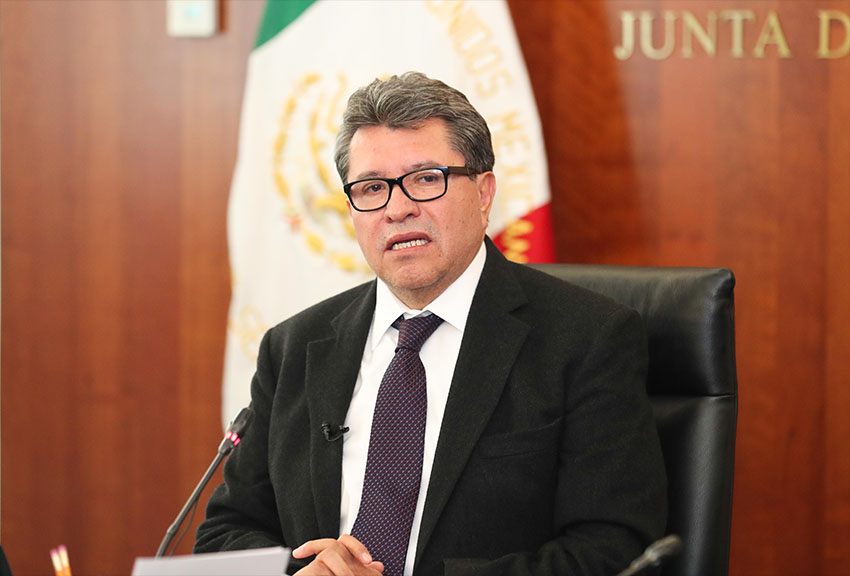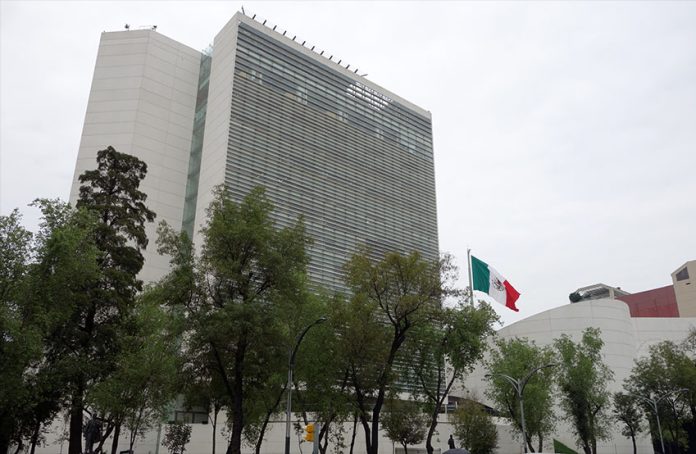A constitutional bill that if approved would allow the use of the military for public security tasks until 2028 is in limbo after the ruling Morena party used its majority in the Senate to block a vote that would have killed off the proposal.
The bill, put forward by an Institutional Revolutionary Party (PRI) deputy, passed the Chamber of Deputies last week with the support of Morena, the Labor Party, the Green Party (both allies of the ruling party) and the PRI.
The bill would pass the upper house if all senators with Morena, its allies and PRI supported it, but several who represent the PRI indicated they would vote against it.
Constitutional bills require support from two-thirds of legislators to become law. Considering that level of support wasn’t forthcoming in the upper house, Morena and its allies used their simple majority on Wednesday to postpone the vote and return the bill to Senate committees where it could be modified to make it more palatable to the PRI lawmakers who currently oppose it.
Had a vote been held Wednesday, the proposal would likely have received support just short of the two-thirds majority required for it to pass.
Senator Ricardo Monreal, Morena’s leader in the Senate, said on Twitter that the vote was postponed to “broaden the debate and reach agreements.”
In an article published on his personal website, Monreal charged that there was currently no “real possibility” to return members of the armed forces to their barracks due to the levels of violence “between cartels and against the civilian population.”
“… Pacifying the country is a titanic task. It is not possible to predict an exact date [when it will be possible] to withdraw the armed forces from public security, but the debate must focus on the conditions needed for that. State and municipal governments have to professionalize their police and guarantee their trustworthiness with strict mechanisms. It is also necessary to stop the trafficking of weapons to our country,” he wrote.

Monreal also said that combating poverty and inequality is crucial because organized crime groups find support and new recruits among disadvantaged people. He called on all political parties to “deepen the debate” about the proposal to keep the military on the streets until 2028 and “offer certainty to the actions of the army and navy.”
Morena Senator Eduardo Ramírez acknowledged that the bill would have to be modified to find the required two-thirds support, but it remains to be seen what changes will be made. He said dialogue with the PRI, “which has shown interest [in supporting the bill]” is required in order to reach the level of support needed.
“This is what follows in the coming days, we have to give ground if we want to approve the reform,” he said.
The National Action Party and the Democratic Revolution Party are vehemently opposed to the bill, arguing that it would further perpetuate a long-running militarized public security strategy that has failed. Their alliance with the PRI is at risk of breaking up due to that party’s support of the bill in the lower house.
The Senate is required to vote on the proposal within the next 10 working days. As things stand, the government has authorization to continue using the military for public security tasks until 2024.
Before taking office, President López Obrador pledged to remove the armed forces from the nation’s streets, but now argues that their presence is essential to guarantee peace.
